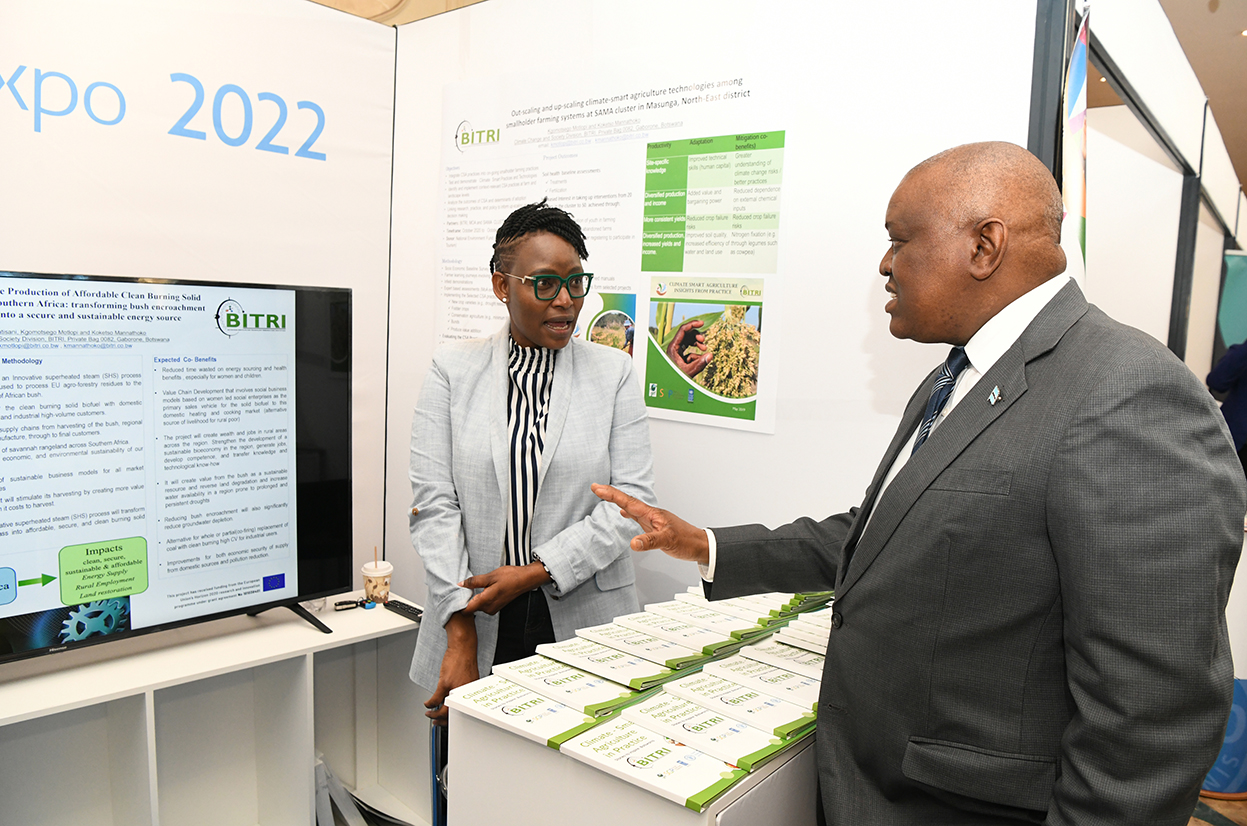Climate change could paralyze key economic areas such as the agriculture and water sectors, President Dr Mokgweetsi Masisi has warned.
He told a high level meeting segment of the National Adaptation Plan Expo in Gaborone yesterday that effects of climate change had already resulted in substantial financial loss and livelihood alteration.
“As in most African countries, our communities depend on both arable and pastoral farming. With the increased temperatures and unpredictable weather patterns, perpetuated by unreliable and below average rainfall, the productivity of the agricultural sector is posing a serious threat to our food security,” President Masisi said.
He said adaptation was therefore not a choice but a development and socio-economic imperative.
Adaptation would always remain a cardinal priority, he said.
The President said the transformation agenda was necessitated by several scientific reports that clearly highlighted the serious global challenge and Botswana’s vulnerability to the impacts of climate change.
“Therefore, hosting NAP Expo is yet another demonstration of political will on the part of my government, to unite our resolve with those facing similar predicament across the globe,” he said.
President Masisi said Botswana continued to do its part in implementing the required measures for building resilience.
He cited the development of the Mosi cattle breed that could withstand the prevailing climatic conditions.
“We further continue to supply the region with animal vaccines produced from our Botswana Vaccine Institute maintaining high international standards and efficacy.
We recently launched the research fund that will provide scholars and researchers with resources to develop transformative initiatives that will among others, continue to enhance our resilience,” he said.
As part of interfacing with technology development, President Masisi said Botswana continued to develop applications and systems for different economic sectors through the Botswana Innovation Hub where some of the recently -developed technologies were housed.
Botswana International University of Science and Technology (BIUST) also continued to strengthen research that led to the development of drones that were piloted in deploying COVID-19 medicines, said Dr Masisi.
The measures, he said, were part of enhancing Botswana’s resilience in the health sector.
President Masisi said having developed policies on climate change, waste management, and land use as well as drought management strategy and several others on the key economic sectors, Botswana still needed a national adaptation plan.
He expressed the hope that the expo would sufficiently provide guidance for Botswana to develop a sound and implementable plan.
He stressed the importance of quantifying the level of investment required to implement such plans.
“We will not shy away from making use of the expo to foster collaboration and partnerships for technical assistance to develop such technical documents that will be instrumental in enhancing our capacity to build resilience and meet our socio-economic development needs,” President Masisi said.BOPA










